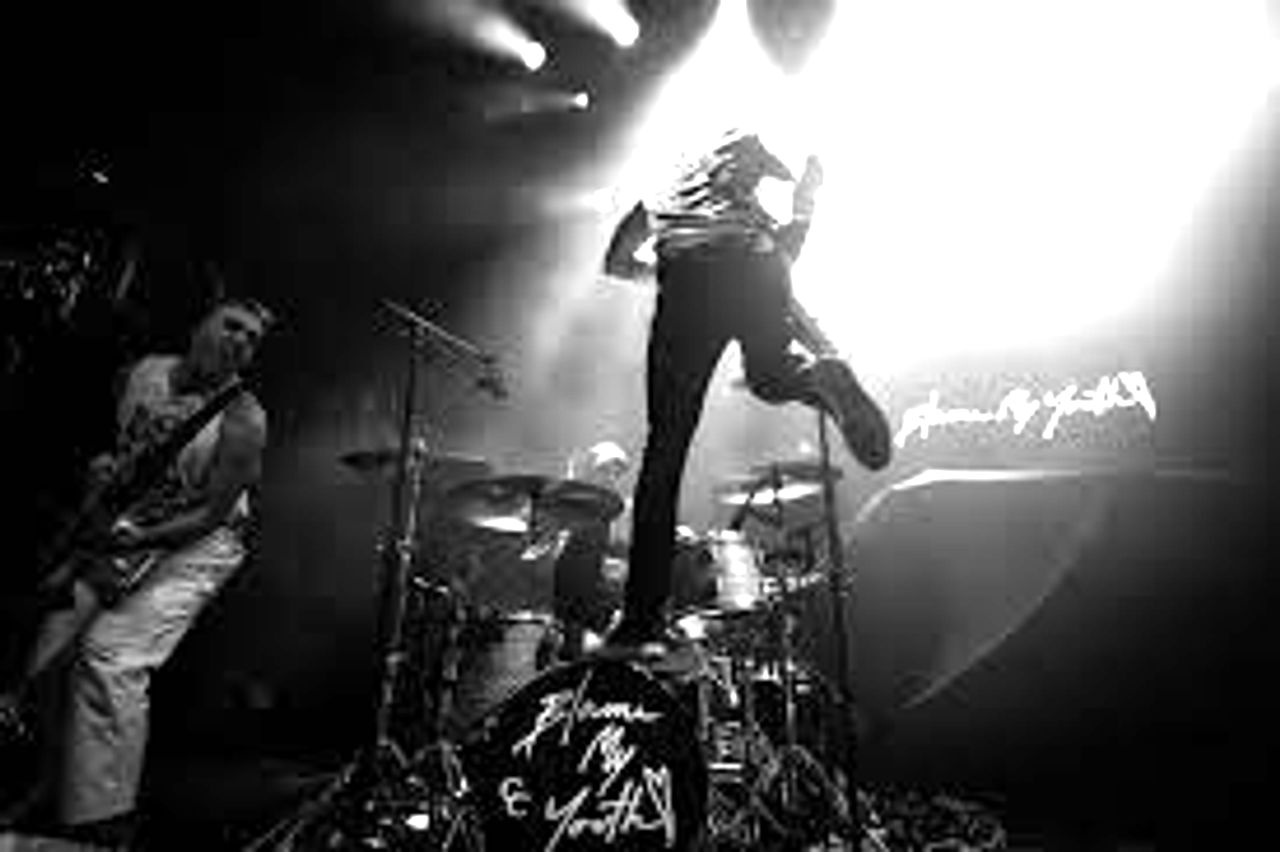

Blame My Youth
Follow Your Favorite Band Today!
Top Blame My Youth Community Posts
Story of Blame My Youth
A Second Strike of Lightning: Sean Van Vleet's Triumphant Return to Music
In the fickle world of music, success is rarely a guarantee, especially for those who have tasted it before. Yet, Sean Van Vleet defies the odds, proving that sometimes, lightning strikes the same place twice. After the dissolution of his former band, Empires, Van Vleet found himself writing for others, penning songs for the likes of All Time Low, Oliver Tree, and PVRIS, while also contributing to over 200 tracks for television shows, commercials, and video games.
However, a creative spark ignited within him, leading him to form Blame My Youth in 2020. The band’s debut single, "Right Where You Belong," found its way onto the GRAMMY-nominated soundtrack of "Bill & Ted Face the Music," solidifying their presence and captivating audiences. The momentum continued with their subsequent single, "Fantastic," which amassed millions of streams and climbed the Rock radio charts.
As Blame My Youth toured the US and UK, sharing stages with renowned acts like HARDY, The Offspring, 311, and AWOLNATION, their third single, "Prizefighter," made its mark on US Alternative radio. This whirlwind of success showcased the undeniable connection Van Vleet’s music has with listeners.
A pivotal moment arrived when Van Vleet began collaborating closely with Billboard Top 100 Producer of 2023, Joey Moi, the co-founder of Big Loud Rock. What began as a typical songwriter-producer dynamic evolved into something more profound. In the studio, they unexpectedly began writing together, discovering a shared passion for the creative process. This newfound synergy resulted in "The Break," a song that marks the beginning of a new chapter for both Van Vleet and Blame My Youth.
"The Break," while undeniably infectious and upbeat, delves into a deeper vulnerability and emotional rawness that sets it apart from Van Vleet's previous work. This transformative track signifies a fresh start, and as he boldly declares, "It's only going to get better and bigger from here." Van Vleet's story is a testament to the power of perseverance, artistic evolution, and the enduring magic of music that resonates across generations.
Frequently Asked Questions
Bands you may like
More Alternative Rock Bands
Discover more bands in the Alternative Rock genre and explore the diverse sounds that define this musical style.
Browse All Alternative Rock BandsMore Bands from United States
Discover the rich musical heritage of United States and explore bands that represent the country's unique sound and culture.
Browse All United States Bands